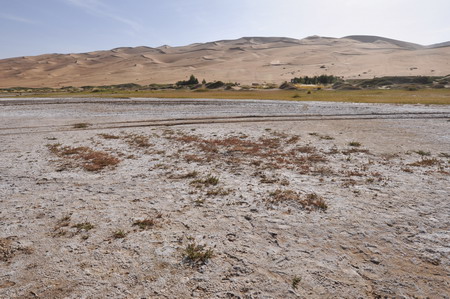Focus
Is water pipeline project merely a pipe dream?
By Jiang Xueqing and Shao Wei (China Daily)
Updated: 2010-11-29 07:58
 |
Large Medium Small |
Evidence in question
On Nov 5 this year, the ocean branch of the China High-tech Industrialization Association, of which Hongyuan is a member, jointly organized a forum in Urumqi, the capital of Xinjiang, with local authorities to promote the Bohai Sea-Lop Nur Lake transfer plan (a similar event was held in Beijing two years ago)
The forum received extensive coverage in the Chinese media. However, many are skeptical about whether such a project is feasible and are afraid it could lead to damaging pollution.
Experts dismissed the idea as "not based on solid scientific evidence".
"It sounds crazy to put seawater into Lop Nur Lake," said Yuan Guoying, director of the Ecological Society of Xinjiang. "The eco-environment in Xinjiang and (in areas) along the (proposed) pipeline will be destroyed."
Shi Yulin at the Chinese Academy of Engineering also warned that the salt in the transferred water will only worsen the region's problem with soil salinization.
In response, Zhang Baoyin, secretary-general of the association's ocean branch, insisted the current discussions are only at an academic level and that his department has carried out no on-site investigation or scientific research.
"The forum was to publicize the idea, so that the public and governments would pay attention. It was not to discuss real plans," he said, before adding that he believes further studies should be done to explore solutions to the possible pollution and salinization of soil.
As the project in Inner Mongolia is smaller in scale, it should be comparatively easy to get off the ground.
According to Wang, the China Institute of Water Resources and Hydropower Research (IWHR) has already done basic research and passed it on to China Water Resources Beifang Investigation, Design and Research Co Ltd (BIDR) for a feasibility study. He said he gave that study to China International Engineering Consulting Corporation for evaluation in 2008.
A manager in charge of the evaluation who did not want to be identified told China Daily the report was done in a hurry and that the corporation's engineers raised questions about potential technical, environmental and investment problems.
"We asked them to revise the study report and send in supplementary materials, which they never did," said the manager. "The evaluation has so far been postponed for a year."
Wang explained the Inner Mongolia Water Resources and Hydropower Survey and Design Institute will do the follow-up work. However, when contacted by China Daily last week, the IWHR declined to comment, the BIDR denied it ever did the feasibility study and the Inner Mongolia institute said it is "incapable of handling such a big project".
China International Engineering Consulting Corporation advised Hongyuan to have the environmental impact evaluated by an independent institute, yet Wang said the appraisal is being performed by an institution under the Ministry of Environmental Protection and will not be finished for three to five years. He refused to name the institution.
